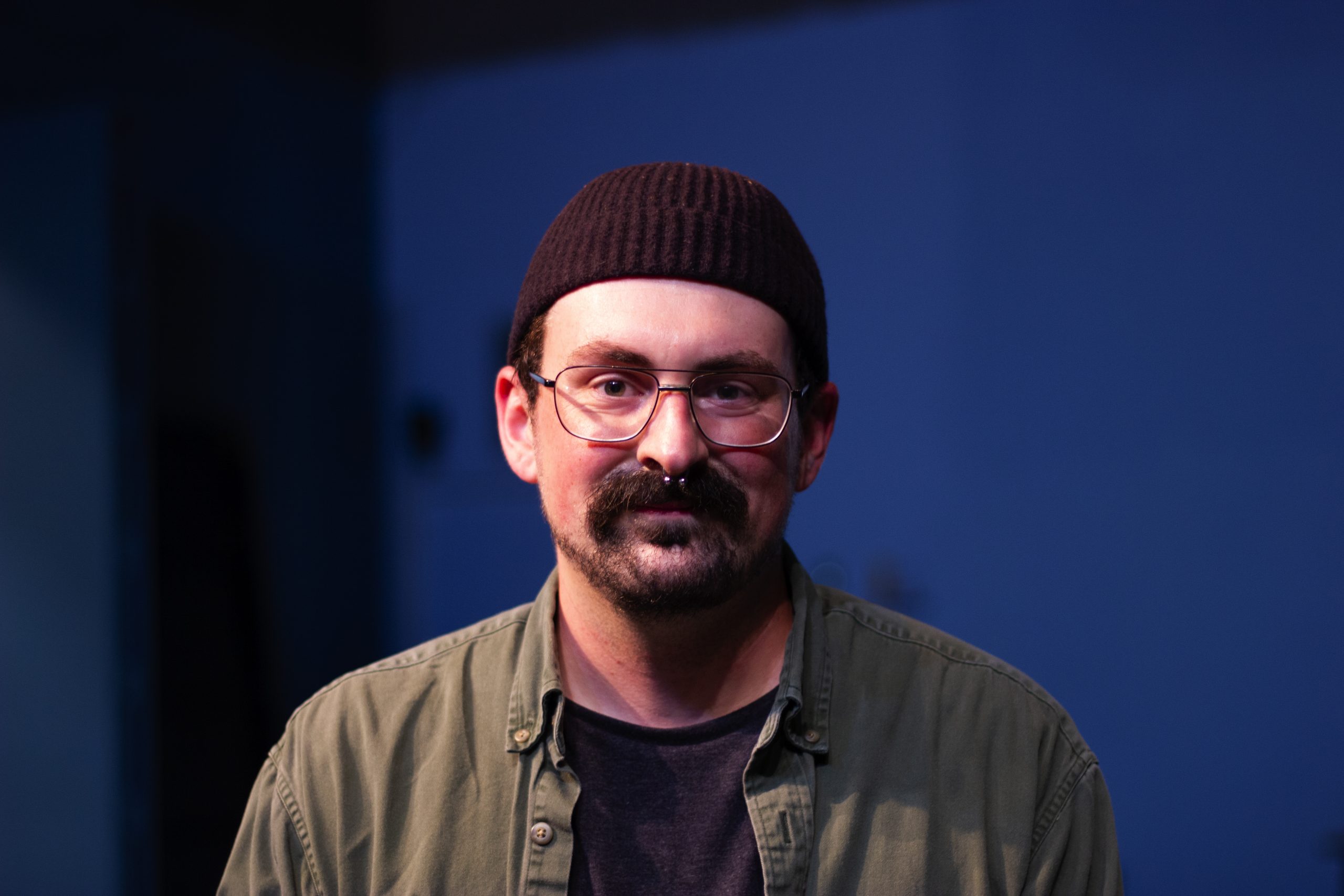Hi, I’m Jacob Claassen (he/him), the interim technical director in the theater department. I want to pull back the curtain and share changes that have been going on in the theater industry because I believe that the things that go on backstage shouldn’t stay backstage.
Backstage is like a pan — you wouldn’t want to eat cake from a dirty pan. Backstage is dirtied by a language that no longer serves the performing arts community.The art on the stage reflects our world, culture and how we treat each other. That means the words we speak on and off stage have power over others, and the intention behind those words does not always match those words’ impact.
In the theater industry, many technical jargon and vocabulary words are barriers to entry for those outside the theater community. Words like gaff, proscenium, cyclorama and fly loft. Often these words can be combined to sound like a completely different language.
For example, “Hey, fly the line set 13 skrim into trim and test to see if the arbor is out of weight.” This language is so pervasive backstage that it also complicates roles behind the curtain. “Master electrician,” “master carpenter” and “props master” are all jobs backstage.
The word “master” is littered with a historically racist context — the definition implies a man who has people working for him, especially servants or slaves or a man in charge of an organization or group.
People today will try to say that “master” means a person who has studied all aspects of a work or craft, but that definition is unacceptable these days because “professional” fills that role just fine, thank you.
We don’t need to pretend that we live in colonies anymore. You must assume that master refers to the historical definition because that’s when the word was used the most. Even if you use that word with the intention of its more modern definition, you do not know what impact it will have on another person who only knows that word as an oppressive term.
“Lead electrician,” “lead carpenter” and “props manager” are titles that reflect how these roles truly act behind the stage — leaders, professionals and team members of the collaborative art of theater, and collaborators in the communities where we live.
Here at Goshen College, we have changed our backstage language to reflect and respect the international community that we belong to and create art for. Although it’s not just titles that need to be decolonized, it’s also the spaces that we use.
Gendered spaces are also changing for the better. Spaces are intentionally crafted with consent and inclusion being the focus, not biology. Spaces can be neutralized by giving them names like “orange” dressing room or South dressing room. Those spaces can be transformed into anything and used by anyone. Decolonization has taken root in the arts and it is coming to a theater near you.
Please think about the words you use because intention does not always match impact, but we can change our vocabulary so our impact matches our intention.




